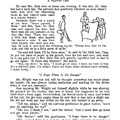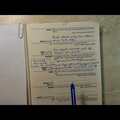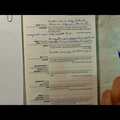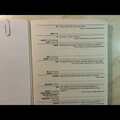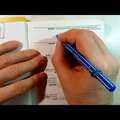The verb ‘BE’ with different auxiliaries
CAN – can be, can not be, cannot be, can’t be (*certanity/likelyhood), (Wh) Can (sy) be?
I can be in front of the building at 5 pm if you like.
I can’t be the last at the race!
*I can’t be his best friend – he didn’t even invite me for his wedding.
Can I be at the door when the celebs arrive?
What can I be at the masquarade ball? Can I be a monster?
He can be here any moment.
He can’t be ill this week – he has a very important show!
*He can’t be the last in the race, because I saw him in a leading position!
Can he be that there, next to that tall girl?
What can it be, if it isn’t food but it looks like that?
You can be what you want to be.
COULD – (past* and conditional**) could be, could not be, couldn’t be, (Wh) Could (sy) be?
*I could be at the right place – but I didn’t know where I was.
**Joe could be the leader of the group, because he has every knowledge that position needs.
*He couldn’t be the reason for failure – he wasn’t even there.
**He couldn’t be the our maths teacher – he knows nothing about numbers!
*Could Bob be the one who called me yesterday? Unfortunately, I couldn’t answer it.
**Could those picures be on the wall of my bedroom? I’d like the view every morning when I’m waking up.
*Where could he be last night?
**What could be the best surprise for her birthday?
MAY – may be, may not be, (Wh) May (sy) be?
Where are my glasses? – They may be under the paper.
She may not be at home now – you know she’s working long hours this week.
May I be here while I’m waiting for Sue?
Where may that book be? Maybe here? No. Perhaps here? No. Ah, I’ve found it!
MIGHT – might be, might not be, (Wh) Might (sy) be?
Have you seen Jake? – He might be in the attic.
He might not be a stupid fool as we have thought so far.
Might his car be in front of her house?
Where might that document be. I can’t find it anywhere.
WILL – will be, ‘ll be, will not be, won’t be, (Wh) Will (sy) be?
I’ll be at the front door at exactly 5 pm.
I won’t be your slave!
Will you be kind to your grandma if I ask you?
What will we do, if it rains all day?
WOULD – would be, ‘d be, would not be, wouldn’t be, (Wh) Would (sy) be?
He would be my boss if I worked there. I’m happy I don’t!
I wouldn’t be good for this position – I can’t wake or get up so early.
Would you be kind and shut up for a moment, please?
Where would you be now, if you could choose?
SHALL I/WE? – Shall I be..? Shall we be …?
Shall I be supporter in this action?
Shall I be sitting at my desk while they are talking to me?
Where shall I be when they arrive?
Shall we be in silence when she shows us the pictures about the party?
Shall we be talking to each other when the girls see us?
Where shall we be during the performance?
SHOULD – should be, should not be, shouldn’t be, (Wh) Should (sy) be?
I should be at home now with my children an not here at this boring company-party.
He should be sleeping and not watching TV.
If he should be up at midnight, please tell him to call me.
Should I be the driver? It won’t work. I don’t have my licence, I’m afraid.
You shouldn’t be so happy – this match hasn’t finished yet.
Where should we go during the spring holiday? To the mountains or to some water?
OUGHT TO – ought to be, ought not to be, oughtn’t to be(Wh) (sy) be?
You ought to be much smarter when you speak to your boss.
They ought not to drive so fast – this road is very bad.
Ought I to read his letter before I speak to him, what do you think?
Which book ought we to give her as a present?
USED TO – used to be, did not use to be, didn’t use to be, (Wh) Did (sy) use to be …?
I used to be very good at maths at secondary school – now I can’t even work out a simple percentage.
He didn’t use to be so rude to his family members.
Did she use to be your girlfriend, didn’t she?
Why did you use to be an employee at that firm?
NEED TO – need to be, needs to be, don’t need to be, doesn’t need to be(Wh) (sy) be?
My books need to be on my desk.
My favourite pen needs to be in my pocket when I go out.
These tools don’t need to be here. I don’t use them.
His lunch doesn’t need to be on the table when he arrives home – he told me that he wouldn’t eat but go to be at once.
MUST – (*necessity; **certanity/likelihood) must be, ***must not be (=to forbid!) , ***mustn’t be
*He must be in front of the door, because he is a guard.
**You must be absolutely exhausted after your flight.
*Must this vase on the desk?
*Why must all your family come to my birthday party?
***Your car mustn’t be in front of the entrance. If you don’t put it away, I will call the police.
HAVE TO / HAVE GOT TO – have to be, has to be, don’t have to be, doesn’t have to be; (Wh) (sy) be? (Wh) (sy) be? (Wh) (sy) be?
I have to be at home when my children comes.
You’ve got to be careful with these eggs.
He has to be healthy if he wants to enter the competition.
He’s got to be older to get in the bar.
You don’t have to be an adult to get married.
You haven’t got to be a computer expert to use a PC.
She has to be in bed if she is ill.
She hasn’t got to be very tall to be a model.
Do we have to be outside the house before the birthday party?
Have we got to be on the square to see the fireworks show?
Does Bob have to be one having a degree to get employed at this firm?
Where do I have to be when the show begins?
What time does he have to be at the corner?
When have they got to be ready?
How has he got to be the right person to solve this problem?
MUST HAVE III – (certanity/likelihood, assertion) must have been, must’ve been
He must have been at home at 8 pm – I saw light in his window.
You must’ve been here before – I can smell your perfume in the air.
Why didn’t you answer my call yesterday? – Ah, sorry, I must’ve been listening to music loudly.
CAN’T HAVE III - (certanity/likelihood, negative) can’t have been
He can’t have been at home at 7 pm – I didn’t see light in his window.
You can’t have been ill, because I heard you laughing loudly all the time.
They can’t have been helped by an expert.
She can’t have been studying at 5 pm, because at that time all her books and notes were in my drawer.
COULD HAVE III – could have been, could’ve been, couldn’t have been, (Wh) Could (sy) have been?
I could have been the one they chose, but I wasn’t, then.
He couldn’t have been a lawyer, because he used to be a criminal.
Could we have been the first in the queue, but you had problems with the security guard?
How could he have been stopped?
MAY HAVE III – may have been, may not have been, (Wh) May (sy) have been?
I may have been the cause of the failure, I must admit.
He may have been ill, that’s why we haven’t heard anything about him for a time.
May you have been here before, just you can’t remember?
Your boss may not have been told about your situation, and that’s why he has given you such a lot of tasks.
What may have been in this dish? It’s got a very strange smell.
MIGHT HAVE III – might have been, might’ve been, might not have been, (Wh) Might (sy) have been?
It might have been the solution, but we had a much better idea.
My car might have been mended, but I bought a new one, instead.
Might it have been yours? They have sold it – did you know that?
My book might not have been on his bookshelf, but I’m sure he’s read it some time earlier.
What might have been in the letter? She got very angry because of that.
When might the party have been on the top of the block of flats? Might they have loved the view or something?
WOULD HAVE III – would have been, would’ve been, ‘d have been, ‘d’ve been, would not have been, wouldn’t have been, (Wh) Would (sy) have been
I would have been her best friend, if she hadn’t got married to my worst enemy.
You wouldn’t have been ill, if you had worn a cap, a scarf, a warm coat and a pair of gloves.
Would he have been the chef here, if he had spoken a foreign language?
Where would we have been yesterday night if we hadn’t come here?
SHOULD HAVE III – should have been, should’ve been, should not have been, shouldn’t have been, (Wh) (sy) be?
I should have been at home at 5 pm, I know.
He should have been better in the competition.
You shouldn’t have been late for the party – the guests had been waiting for you at leat for an hour.
Should the man have been an expert in that field for getting the job?
Why should I have been taller than 180? In that job I would have stood behind a counter and nobody would’ve seen that I’m standing on a small stool.
OUGHT TO HAVE III – ought to have been, ought not to have been, oughtn’t to have been, (Wh) Ought (sy) to have been?
You ought to have been generous and given some money to the beggar.
You oughtn’t to have been rude to that old man.
Ought he to have been there when the accident happened and been an eyevictim?
What ought we to have been doing when they came into the room?
DIDN’T NEED TO – didn’t need to be
He didn’t need to be at school last week – but I don’t know if he really was there or not.
I didn’t need to be up last night, so I went to bed very early.
NEEDN’T HAVE III – needn’t have been
You needn’t have been here till the end of the show, so I don’t understand why you didn’t go home earlier.
HAD TO – had to be, did not have to be, didn’t have to be, (Wh) Did (sy) have to be?
I had to be the judge in their case.
So you had to be the driver during your family holiday? Well then, you must have been tired when you arrived home after that.
I didn’t have to be stronger than the others just cleverer.
Did she have to work yesterday? I looked for her at her home but she wasn’t there.
What did she have to be doing between 6 and 7?
HAVE BEEN ABLE TO – have been able to be, ‘ve been able to be, has been able to be, ‘s able to be, have not able to be, haven’t able to be, has not able to be, hasn’t able to be, (Wh) Have (sy) been able to be? (Wh) Has (sy) been able to be?
I have been able to be at the top of the chart for a month.
I haven’t been able to be very different from the other artists for a long time, so I think I’ll give up painting.
How have you been able to be running so fast for 10 hours?


